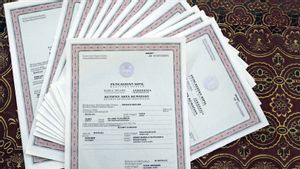JAKARTA – The delivery service for food and goods which has increased sharply during the COVID-19 pandemic has inspired many delivery companies. Many of them continue to develop and strengthen their services to foreign countries.
Russian tech giant Yandex announced on Wednesday, September 14 that it has launched the food delivery service Yandex Eats in Armenia. This expansion is to fulfill a promise to expand its e-commerce offering after selling off several other lines of business to rival VK.
Yandex last month agreed to sell its news aggregator, content platform Zen and homepage yandex.ru to state-controlled VK in a move that is expected to tighten the government's grip on internet businesses.
The deal, which closed last Monday after receiving regulatory approval, saw Yandex obtain a Delivery Club food delivery service license from VK, complementing Yandex Eda's e-grocery and food delivery offerings, which include Yandex Eats.
"Entering foreign markets is one of the priorities of Yandex's food technology business," Roman Maresov, head of Yandex Eda, said in a statement. Yandex Eda itself is currently operating in Kazakhstan and Belarus.
SEE ALSO:
"Thanks to the closing of the Delivery Club purchase deal, we will be able to allocate more resources to localize the service, which is necessary to launch in a new country," he said.
Yandex Eats has launched in Armenia in a trial mode, in collaboration with 100 restaurants they are connected to.
Like many other Russian businesses, Yandex, which dominates Russia's internet search engine business and online transportation sector, has faced significant hurdles since Moscow sent tens of thousands of troops to Ukraine on February 24. Yandex is not directly approved by the West.
Yandex last August forecast the size of the Russian food delivery market to grow by 650 billion rubles (IDR 164 trillion) in 2021 and see annual growth of 20%.
The English, Chinese, Japanese, Arabic, and French versions are automatically generated by the AI. So there may still be inaccuracies in translating, please always see Indonesian as our main language. (system supported by DigitalSiber.id)

















